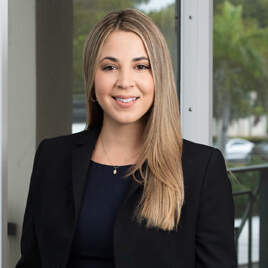
In a recent decision, the Florida Supreme Court amended Florida Rule of Civil Procedure 1.280, adding a section to codify the “Apex Doctrine” and extend its protections to private corporate officers, whereas in the past it only protected high-level government officials. On its own sua sponte motion, the Florida Supreme Court found that it was best to apply the Apex Doctrine to both private and government officers to provide efficiency in the discovery process, as well as to prevent “undue harassment and oppression of high-level (company or government) officials.”
The opinion in Suzuki Motor Corp. v. Winckler, 284 So. 3d 1107 (Fla. 1st DCA 2019) served as the impetus for the Florida Supreme Court’s decision to take up the Apex Doctrine. In that case, Winckler sued Suzuki Motor Corp. and sought to depose the company chairman and former CEO, Osamu Suzuki. The First District Court of Appeals affirmed the trial court’s holding that the Apex Doctrine only protects “high-ranking government officials” and concluded that the trial court did not depart from the essential requirements of the law by refusing to apply the Apex Doctrine to Suzuki’s corporate officer.
The dissent recognized that while Florida courts have not invoked the Apex Doctrine outside of the government context, the rationale of the doctrine is equally applicable in the private sphere.
The appellate court certified the following question to the Florida Supreme Court: “Does a departure from the essential requirement of law occur when the so-called apex doctrine, which applies to governmental entities…, is not applied to a corporation?” Although the Florida Supreme Court ultimately exercised its discretion to discharge jurisdiction of the Suzuki case, it used that case to decide whether to adopt the Apex Doctrine in the corporate context.
As adopted by the high Court, the new rule, Fla. R. Civ. P., Rule 1.280(h) states that “a current or former high-level government or corporate officer may seek an order preventing the officer from being subject to a deposition.” The protective order motion “must be accompanied by an affidavit or declaration of the officer explaining that the officer lacks unique, personal knowledge of the issues being litigated.”
If the court finds that the officer has met the “high-level officer” requirement and accepts the affidavit that the official lacks unique, personal knowledge of the issues being litigated, then the burden shifts to the opposing party to demonstrate the need for the discovery. The opposing party must demonstrate that they have exhausted all other discovery options and that the officer does in fact have personal knowledge of discoverable information.
Within the opinion, the Supreme Court chose not to define who is considered a “high-level government or corporate officer” and referred to case law to define the term. Further, the Court stated that “high-level officer” status depends on the individual organization and the deponent’s role in that organization. Regarding the second burden, the Court’s explicit requirement for an affidavit or declaration allows the Court to evaluate whether the “high-level” official lacks unique, personal knowledge of the facts. The affidavit must be sufficient to show the relationship between the facts of the case and the officer’s position, and his or her personal knowledge or lack thereof.
Rule 1.280(h) stands on its own and is an alternative to rule 1.280(c). Rule 1.280(c) allows courts to grant protective orders upon motion by party “from whom discovery is sought, and for good cause shown…to protect a party or person from annoyance, embarrassment, oppression, or undue burden or expense that justice requires.” The new rule is for use in the “limited context of depositions of high-level government and corporate officers” and is not governed by the “good cause standard” that is in rule 1.280(c). The amended rule also provides that government or corporate officers that cannot meet the burden found in 1.280(h) or choose not to try, can still seek protective order relief under Rule 1.280(c). The amendment became effective on August 26, 2021 (the date of the opinion) and will apply to pending civil cases where appropriate.
Florida’s high court is taking action like this on its own initiative, to seemingly balance the playing fields in civil litigation. Adoption of the Apex Doctrine for civil litigation will go some distance in affording high-level officers of national and multi-national corporations and businesses, from having to be subjected to otherwise harassing and time-consuming discovery by aggressive plaintiff counsel.
Litigators at Segal McCambridge, especially in the firm’s Florida office, will use this doctrine to prevent unnecessary and vexatious depositions of high-level corporate officials within the companies that the firm represents.


